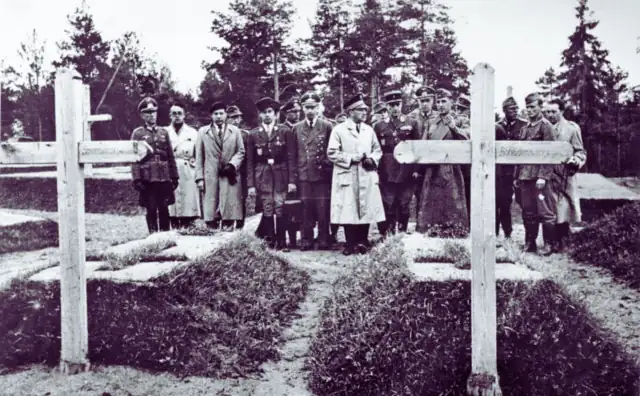
Sofia, Bulgaria – Decades before official documents confirmed Soviet responsibility for the Katyn massacre, a Bulgarian author dared to touch a subject forbidden behind the Iron Curtain.
The Expert’s Mistake, a 1973 novel by Miladin Apostolov, quietly broke ranks with the prevailing propaganda by shedding light on the mass executions of Polish officers in Katyn Forest—an atrocity officially denied and misattributed for years.
According to BGNES, the novel, which drew only modest attention in Bulgaria at the time, has recently resurfaced in historical discussions, especially in Poland, where the subject remains deeply sensitive.
Apostolov’s book told the story of Associate Professor Metodi Martinov, a Bulgarian forensic expert dispatched by Prime Minister Bogdan Filov in 1943 to examine mass graves near Smolensk as part of an international commission formed by Nazi Germany.
Martinov, the novel’s protagonist, is a thinly veiled depiction of real-life Bulgarian pathologist Marko Markov. In reality, Markov was one of several experts brought by Nazi officials to investigate the Katyn site following its discovery in 1943.
The commission included representatives from countries allied with or sympathetic to Germany, and it concluded that the Soviet NKVD executed over 20,000 Polish military officers and intelligentsia in 1940.
Apostolov’s fictionalized account follows Martinov as he travels from Sofia to Berlin, Warsaw, and finally Katyn, where he signs off on a report supporting the German narrative—that the Soviet Union, not Nazi Germany, was to blame.
At the time of the novel’s publication, such assertions directly contradicted the official Bulgarian and Soviet stance, which maintained that the Nazis had committed the crime after occupying Smolensk in 1941.
Polish military portal polska-zbrojna.pl recently revisited the novel, recognizing its unique value in portraying events that mirrored real history, despite the propagandistic tone that suggested German innocence.
The site noted how characters in the novel, from German officers to Bulgarian officials, were modeled after historical figures involved in the Katyn investigation.
The article further emphasized that the novel carried a documentary feel, though it stopped short of challenging the Soviet version outright.
Despite its nuanced revelations, The Expert’s Mistake was largely ignored in Poland upon release, overshadowed by the regime’s censorship and skepticism over literature from Eastern Bloc nations.
In Bulgaria, it stirred mild curiosity but failed to achieve widespread recognition due to the political risk attached to its content.
Miladin Apostolov, best known for his medical scholarship, was not a traditional novelist. A pioneering educator, he was the first dean of the Faculty of Social Sciences at Sofia’s Medical Academy and introduced subjects like the history of medicine and public relations into medical curricula.
His contributions earned him high honors, including the Order of Stara Planina and the Order of Cyril and Methodius. Apostolov passed away in January 2023, leaving behind a legacy that straddled science, education, and bold historical commentary.
As discussions about the Katyn massacre continue to evolve, The Expert’s Mistake stands as a rare literary work that challenged Cold War-era taboos—long before the truth was officially acknowledged.
